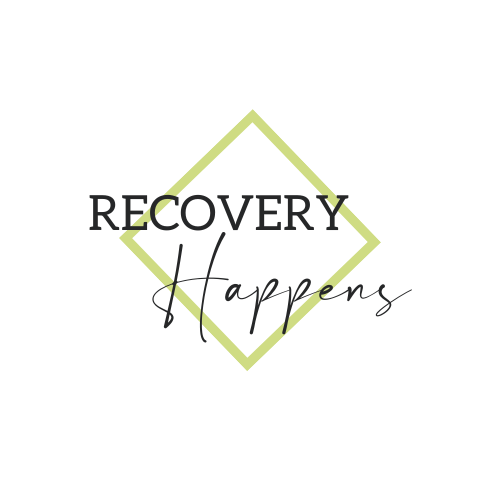
Recovery Happens
Exploring Pathways for Healing Trauma and Addiction
Discover an Inside Out Approach to Your Recovery Journey
Unlock the link between trauma and addiction
Are you or someone you love struggling with addiction?
Are you looking for more support in your recovery process?
Have traditional approaches to recovery not worked?
Do you want to go further in your recovery journey?
It’s time to explore a new pathway to healing.
Introducing a groundbreaking new course that unlocks the link between trauma and addiction to help people overcome self-defeating cycles. Led by Carrie DeJong, a Registered Clinical Counsellor specializing in trauma and its connection to addiction, this course is designed to provide you with the tools and insights you need to heal from addiction and live a more regulated life.
Whether dealing with substance misuse, disordered eating, or any other form of addiction, this course offers a fresh perspective on recovery and a pathway from surviving to thriving.
Join us on this journey to healing and discover the power of addressing the root causes of addiction.
Recovery Happens
How this can help
We start by deconstructing the myths of addiction that hinder progress in recovery by perpetuating harmful stereotypes and increasing feelings of shame and guilt.
For families, the myths of addiction can tear relationships and complicate recovery support. You'll discover addictive behaviours have roots in past traumas, and by understanding and coping with these traumas, you will be better equipped to manage any substance misuse or addiction disorders.
Learning about your trauma load and how it impacts your nervous system can be a crucial step towards addiction recovery. It can also provide deeper insights as you take further steps in your healing journey if you are already in recovery.
By gaining a deeper understanding of how past traumas can lead to addictive behaviours, you can start to identify patterns in your behaviour and find a new personalized pathway of recovery.
A Pathway of Recovery
Results you can expect
Recovery Happens Video Clip
The Adverse Childhood Experiences Study
Take a look at a snippet from the course where Carrie introduces the Adverse Childhood Experiences Study. The ACE Study is a ground-breaking study that enables us to see two vital things:
How much trauma children and teens experience
How trauma paves the way for unhealthy coping behaviours including substance use
The ACE Study
What’s Included
Videos from Carrie
Listen to Carrie explain the concepts, relay accounts of her clinical experience, and teach you new things about your nervous system.
A 50+ Page Journal
Keep record of your progress as you move through the course. Explore your own experience and reflect on tools that offer helpful support.
Resources
Explore the additional articles, guided practices, grounding tools, and helpful resources to assist you on your pathway of recovery.
Course Curriculum
-
• Course Overview
• Introduction to Vortex Model of Addiction
-
• Addiction
• Defining Trauma
• The Connection Between Trauma & Addiction
-
• Exploring Myths about Trauma & Addiction
• How our Biology is Impacted by Trauma
-
• The Adverse Experiences Study
• Six Categories of Trauma
• How Trauma Energy Gets Stuck
-
• Hyper-Arousal Symptoms
• Hypo-Arousal Symptoms
• Disrupted Sense of Self
-
• The Triune Brain Model
• Understanding Your Nervous System
• Survival States
-
• What is Interoception
• Interoception Challenges
• How We can Grow this Superpower
-
• What is Neuroception
• Neuroceptive Matches and Mismatches
• How We can Grow this Superpower
-
• Understanding the Vortex of Addiction
• Pathways of Recovery
Recovery Happens: Exploring Pathways for Healing Trauma and Addiction
Who is this for?
The relationship between addiction and trauma means that any kind of addiction can be eased through the pathway of trauma awareness.
Anyone concerned about their substance use or mood-altering and anyone in recovery from an addiction disorder.
Personal Awareness
Understanding the impacts of your past trauma and how to work with regulating your nervous system may be an entirely new pathway you have not explored before. Understanding this vital connection offers insight and tools to help you take steps towards recovery or deepen the healing journey you are already on.
There are many different types of addiction disorders - all can benefit from an opportunity to explore the impacts of past trauma and learn a new pathway to recovery. This information is helpful at any point in your recovery journey.
Families
Relational Awareness
Understanding your family member and how trauma may be contributing to their addiction.
Professionals who want to understand their clients better
Professional Awareness
As a professional working with clients experiencing addiction disorders, understanding the link between trauma and addiction can be an essential tool for providing effective care. By taking a trauma-informed approach to addiction treatment, you will provide an enhanced safe and supportive environment that emphasizes healing and growth.
Carrie DeJong
Recovery Happens: Pathways for Healing Trauma and Addiction
Carrie is a Registered Clinical Counsellor (RCC) with the British Columbia Association of Clinical Counsellors (BCACC). She holds a Master’s degree in Counselling (MC) and has over 25 years experience working in trauma treatment programs, residential addiction treatment, and private practice.
Carrie focuses on bringing greater awareness to the impacts that anxiety, chronic stress, and trauma have on emotions and overall functioning, especially the use of mood-altering substances and behaviours to cope. She offers non-judgmental help for addressing unhealthy behaviours.
Her goal is to bring more science and more compassion to the field of addiction recovery. She offers tools, support, and hope for clients to move forward in their lives.
$250.00 USD
Your Questions Answered
How long is the self study course and how much time should I dedicate to it each week?
The self study course consists of 8 modules, each about 28 minutes. On average, it is recommended you dedicate about 2-3 hours per week to complete the course - but this may vary based on your individual learning style and pace.
You can take as much time as needed to complete each module and can access the materials at any time.
Can I access the materials at any time or are there specific times when I need to be online?
Yes, you can access the materials for this self study course at any time. There are no specific times when you need to be online. The course is designed for self-paced learning.
All of the course materials, including videos, reading materials, and invitations/activities, will be available from the beginning of the course. This allows you flexibility to learn at your own pace, on your own schedule. You can access the course 24/7 anywhere you have an internet connection.
Is there a deadline for completing the course and submitting assignments?
No, there is no deadline for completing the course. This self-study course does not have any assignments to submit.
Instead, the course is structured around reflective exercises and journaling. A journal is provided with prompts for you to record your thoughts and reflections. You can take as much time as you need to complete each module, The focus of the course is on self-discovery, so the pace and progression will be determined entirely by your own personal goals and learning objectives.
Disclaimer
and help your journey of recovery in the process.
Explore and Heal Your Relationship with Trauma
The materials in this course are simply opinion. You should not rely on content presented for a diagnosis or treatment of any health or mental health condition. Always consult an appropriate healthcare professional if you suspect you require medical or psychiatric treatment. The content presented is intended to provide general health information for educational purposes only and you should contact the appropriate healthcare professional before relying on any such information.
If you are experiencing an emergency, call your local emergency services immediately.









